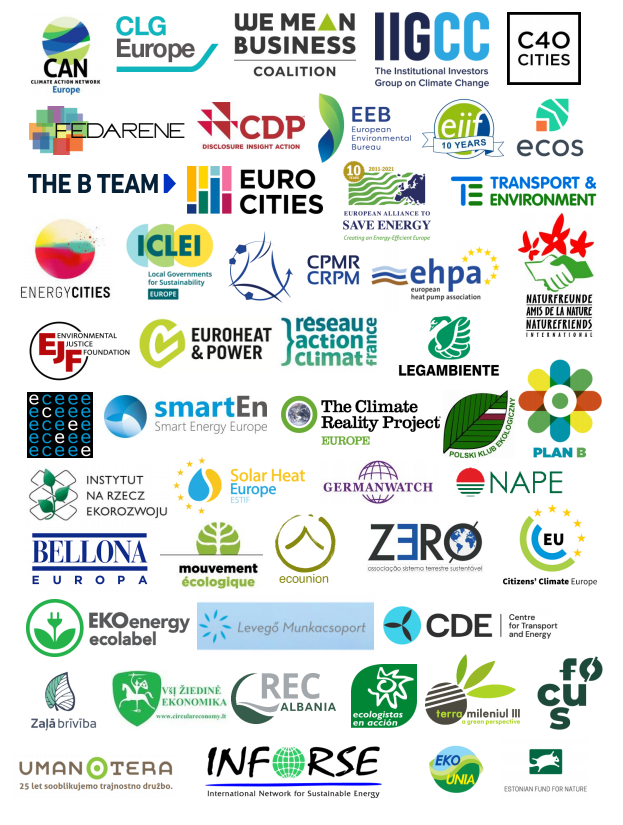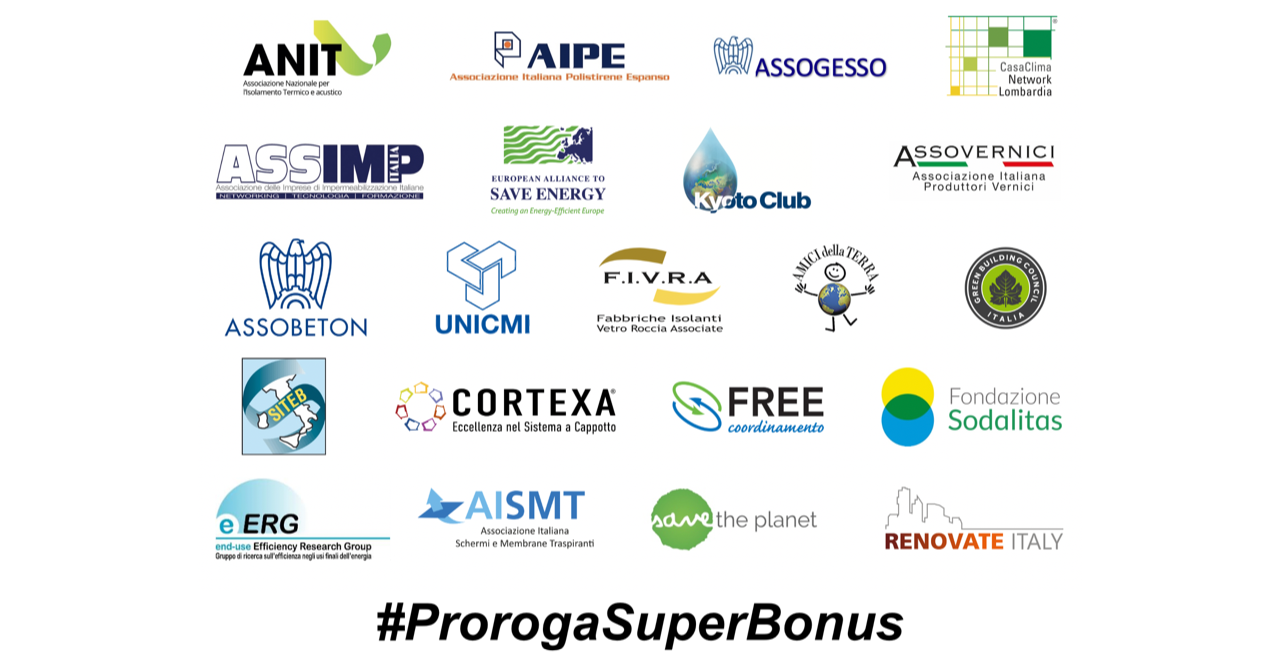Wide coalition of stakeholders spells out expectations on “Fit for 55” package

Ahead of the European Council’s discussion on 25 May about the new climate and energy legislation (so called Fit for 55 Package), EU-ASE joined with European businesses, investor groups, local and regional authorities and NGOs calling upon EU decision makers to ensure that the upgraded climate and energy legislation increases the EU’s climate ambition to the highest possible level.
Signed by 50 organisations, the joint letter highlights that “If the European Green Deal is the EU’s growth strategy, the new climate and energy legislation should be its engine”. Based on this principle, the letter calls upon the EU Heads of State to further step up the EU’s climate action by expanding the scope of the EU 2030 target. It also urges EU decision makers to strengthen the Emission Trading System and to maintain and increase nationally binding targets under the Effort Sharing Regulation (ESR) covering emissions from road transport, buildings and agriculture and waste.
Finally, the letter reminds the importance of increasing targets for renewable energy and energy efficiency in line with higher climate ambition and ensuring that they are binding, and concludes by highlighting the need to have full synergy between climate and energy legislation and other EU targets, policies and measures.
Stakeholders representing over 2.700 cities, 330 regions, investors with over €37tn in assets, more than 1.100 companies and 390 NGOs, emphasise the importance of creating synergy between the “Fit for 55” Package and national, local and regional EU funding opportunities in order to send a strong signal that EU funds will support the implementation of the EU’s enhanced climate objectives.
In a fast-changing political and economic environment, 2025 was a year of continued efforts to strengthen security, stability, and competitiveness for European businesses.
Throughout the year, our work demonstrated that energy efficiency is not only essential to achieving climate goals, but also a key driver of innovation, energy independence and sustainable long-term growth across Europe.
Strong engagement with policymakers, combined with the successful organisation of the 4th European Energy Efficiency Day, highlighted the importance of collaboration and dialogue in advancing shared objectives. Partnerships across sectors and institutions remained central to delivering impact and shaping effective energy policies.
Looking ahead to 2026, we will intensify our efforts to secure the regulatory certainty that can accelerate the energy transition, while providing businesses with the investment confidence they need and strengthening Europe’s competitiveness.
Read the full Activity Report here.





